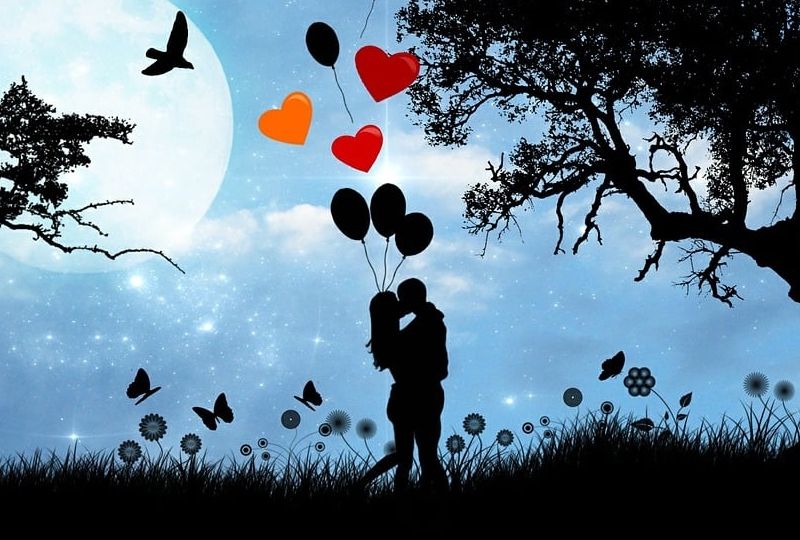A Guide to Valentine's Day Phrases and Culture in German

When you think about celebrating Valentine’s Day, German-speaking nations probably aren’t among the first places that you consider as being romantic. Countries like France and Italy are known for being romantic, so you would expect those nations to be more engaged in a holiday that is synonymous with love.
And you would be – at least partially – correct.
Valentine’s Day has been celebrated in a lot of nations for the last few hundred years, but German-speaking countries didn’t really celebrate the holiday until the 1950s. When they say that, there is a large part of the population that tends to ignore the holiday, the non-celebrants are a lot more obvious than in English speaking countries. They aren’t protesting the holiday – they simply don’t see it as a holiday.
That doesn’t mean that they completely ignore it though. There are plenty of people in Germany who thoroughly enjoy the holiday, making the most out of celebrating a day that is a new holiday.
Let’s take a look at how the holiday is celebrated in a place where it is a relatively new holiday – and what they’ve done to make it their own.

An Imported Holiday
Given how many holidays we celebrate that have a very strong German influence, it’s a bit odd that this popular holiday has very little German influence. Originally, February 15 was a holiday to celebrate spring and fertility. Germans did have their own ways of celebrating the holiday, but nothing that is represented in Valentine’s Day today.
Valentine’s Day is actually a celebration of three different men with some variations of the name. As the Christianity spread across Europe, the holiday took over some of the older celebrations. While celebrating saints that gave the holiday its name, it took on a slightly different turn when the focus became more romantic.
People started giving each other gifts and favors to express love. Valentine’s Day was incredibly popular in the Middle Ages in France, Italy, and England. It just didn’t really seem to appeal to people in the Germanic regions. They did seem to focus on the bigger holidays, particularly those that were acknowledged in the Christian religion.
This remained largely true until the middle of the 20th century. Following World War II and the restoration process that followed, there was a much greater influence in Germany from other European and North American nations.
While it was largely ignored prior to the 1950s, a few Germans did find some enjoyment in the celebration. It did resonant with some, but it still isn’t a particularly big holiday in the region.
If you want to take your sweetheart out for a nice meal, you will have a much easier time on February 14 in Germany than in most other European or North American nations. That’s because less than half of the population treats the day as a romantic occasion. This does vary though, as the holiday is fairly popular in Bavaria, so you will need to do a bit of research if you are in the country for this particular holiday.
It's about Romance
In the US, Valentine’s Day is celebrated across all age groups. Children create their own Valentine’s Day cards and give each other candies. This really isn’t a thing that Germans do. It’s a holiday for romance and adults, not for kids.
While not all adults celebrate the day, those who do tend to love it. They also tend to have the same idea of what is romantic as nearly every other nation that celebrates the holiday. Flowers are generally a nice choice. Chocolates, cards, and jewelry are also popular choices. There isn’t much of a difference when it comes to the gifts and sentiments, making it easy if you are in Germany. You won’t have to change your gifts to enjoy the experience.

Love Language in Germany
Now to the part of the blog that you are probably here to read – the words and phrases that you will almost certainly use to celebrate the day, no matter where you are in the world. There are also a few special touches that they’ve added to the holiday to make it a little more authentically German.
Phrases to Love By
You need the right vocabulary to express your love for your partner on Valentine’s Day. Whether you are writing a personal card or expressing your love over dinner, here are the words and phrases you need to know.
| German | English |
|---|---|
| die Blume(n) | flower(s) |
| das Hers | heart |
| der Kuss | kiss (noun) |
| küssen | kiss (verb) |
| hübscher | handsome |
| --- | --- |
| Schatz | treasure |
| Schatzi | sweetheart or darling |
| Liebsch | Sweetie |
| meine Liebe | my love |
| mein Liebchen | my dear |
| mein Liebling | my darling |
| mein Engel | my angel |
| Geliebter | loved one |
| --- | --- |
| Ich liebe dich. | I love you. |
| Du bist mein ein und alles. | You are my everything. |
| Du bist so wunderschön! | You are so beautiful |
| Niemand ist perfeckt, aber du bist perfeckt für mich. | Nobody's perfect but you're perfect for me. |
| Do bringst Farbe in mein Leben und ein Funkein in meine Augen. | You add color to my life and. sparket to my eyes. |
| Fröhlichen Valentinstag! | Happy Valentine’s Day! |
A Few of Their Own Traditions
Germany may not be as serious about Valentine’s Day as most other western countries, but they know how to put their own spin on imported holidays. And it is not always obvious to non-German speaking people how these things became associated with the holiday, but that’s what makes them uniquely German.
Lebkuchen – Love cookies that are decidedly Germanic. You take a heart-shaped ginger cookie and add icing – they are lot like American chocolate chip cookie cakes with icing. It’s a bit like a combination of gingerbread houses and Valentine’s Day. It’s something that you can easily make at home with the right cookie cutters and ingredients.
Glücksschwein – Lucky pigs are definitely something that is entirely a German concept. Pigs are representative of a lot in the history of the country, and they are often seen as a sign of luck. When you consider the meaning behind the slang “get lucky” there is actually a similar meaning behind the Glücksschwein. In addition to being a symbol of luck, they can also represent lust. This makes them a Valentine’s Day symbol in Germany. They are put on hearts, may be carrying clovers, and are often a pig on a ladder while holding a four-leaf clover. It’s a cute image with a good bit more meaning behind it.

Conclusion
Although it isn’t one of their biggest holidays, Germans do know how to make the most out of a holiday that is much newer – they don’t have centuries worth of celebrating it. Perhaps that’s why they treat it like an adult holiday. They really don’t have much for kids to enjoy, but adults can have a lot of fun on this particular holiday if they want to participate.
Germans may not be known for romance, but it doesn’t mean they aren’t capable of being quite romantic when they want to be. If you want to add a bit of a Germanic flavor to your celebration, it’s pretty simple and very distinct.
Fröhlichen Valentinstag!
